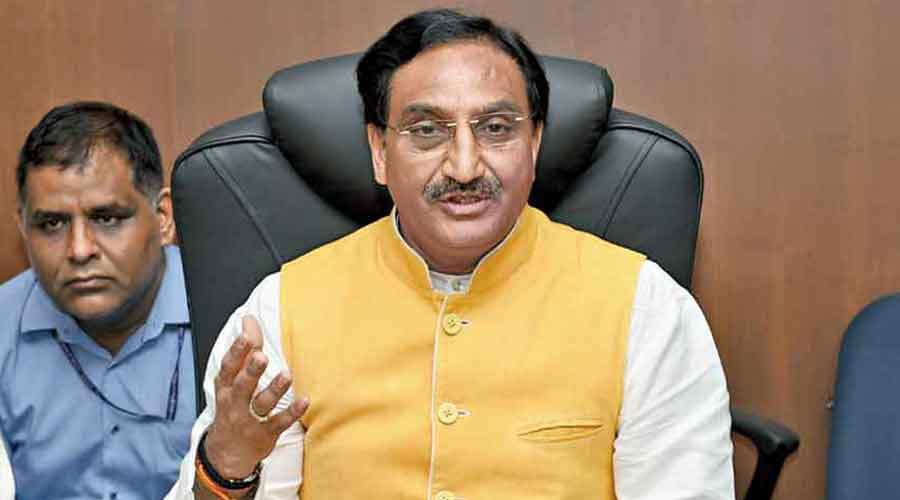The Centre has asked higher educational institutions to fill up vacant faculty posts over the next one year, nearly two years after then education minister Ramesh Pokhriyal had assured the Lok Sabha that the recruitments would be done in six months.
Higher education secretary Amit Khare wrote to the heads of the IITs, IIMs and central universities on Tuesday, asking them to fill up the vacant faculty posts in Scheduled Caste (SC), Scheduled Tribe (ST), Other Backward Classes (OBC) and economically weaker sections (EWS) categories.
“In order to clear this backlog, it has been decided that all CHEIs (central higher educational institutions) should fill these vacancies in a mission mode within a period of one year starting from September 5, 2021, to September 4, 2022, and to report about action taken and progress made in this regard,” the letter from Khare stated.
The institutions have to send monthly progress reports to the government and also mention the status of the appointments in their annual reports.
Nearly 40 per cent teaching posts are vacant at central universities, while around 30 per cent are empty at the IITs and IIMs.
During the debate on the Central Universities (Amendment) Bill, 2019, in the Lok Sabha on July 12, Pokhriyal had assured that the vacancies would be filled up in six months.
“Niyuktia ke bare mein hum keh diye hai ki agle chhay mahine ke andar rikt padon ko bhara jayega. (About recruitments, I say that all the vacant posts will be filled up in the next six months),” Pokhriyal had said.
The deadline ended on January 12, 2020. But the post continued to remain vacant, barring at some institutions such as Jawaharlal Nehru University that has appointed over 100 faculty members amid complaints of irregularities.
Several universities are managing with guest and ad-hoc teachers.
Delhi University has over 4,000 ad-hoc faculty members who are on contract and do not get promotions and leaves. Allahabad University has nearly 300 faculty members against the sanctioned strength of 850.
An IIT Delhi faculty member said non-availability of qualified candidates was impeding appointments.
“You need candidates ideally having proper, good quality PhD degrees. But there are not enough candidates. There has been no effort in the last several years to create a pool of qualified candidates. This needs long-term planning and academic vision, which is missing,” the faculty member said.
He said many talented students were not taking interest in academics because of the “low dignity” associated with the profession. He said many talented candidates from reserved categories faced discrimination during interviews.
“The ‘not found suitable’ tag is many times used arbitrarily. There is no mechanism to check it,” he said.











